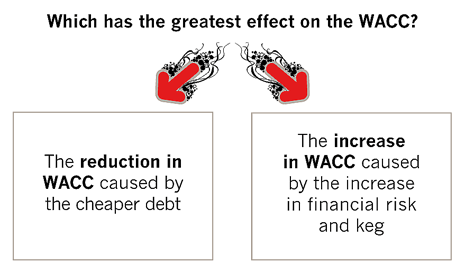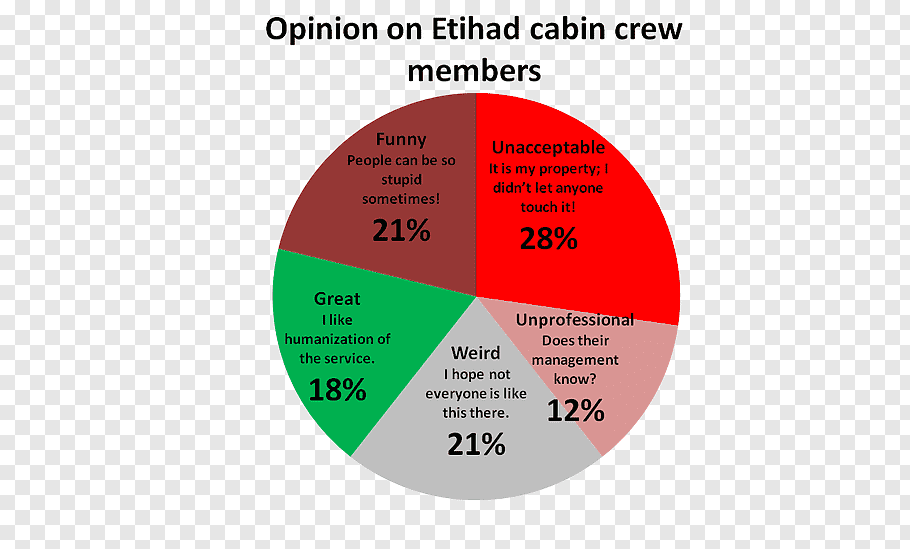

Suppose the stock prices do not appreciate and instead depreciate. In that case, the bondholders might refrain from converting bonds to equity, and the money might have to be repaid by the issuer on bond maturity. Hence, if the company is going through a bad phase, the stocks may not do well and, therefore, may not be converted to equity by FCCB holders. In such a scenario, the already troubled company may face an additional burden of interest and principal repayment to be made to the bondholders. Hence, an FCCB may be suitable in a bull market scenario and may be affected by bear market phases. A bond is a debt instrument that provides income to investors in the form of regularly scheduled interest payments called coupons.

In other words, the money being raised by the issuing company is in the form of foreign currency. It acts like a bond by making regular coupon and principal payments, but these bonds also give the bondholder the option to convert the bond into stock. Since the principal has to be repaid at maturity, an adverse movement in exchange rates in which the local currency weakens can cause cash outflows on repayment to be higher than any savings in interest rates, resulting in losses for the issuer. In addition, issuing bonds in a foreign currency exposes the issuer to any political, economic, and legal risks prevalent in the country.
What is Foreign Currency Convertible Bond?
FCCB are issued by a company which can be redeemed either at maturity or at a price assured by the issuer. In case the company fails to reach the assured price, bond issuer is to get it redeemed. The price and the yield on the bond moves on the opposite direction. ECB is borrowings and when FCCB is converted into shares, it changes the form – from Debt into Equity- and it is no more ECB. FMS Means the provision by Cartrack to the Client of a real-time web-based system whereby the Client is able to position, monitor and obtain reports covering various aspects of driver and Vehicle performance. This Service only applies where a GPS fleet management Unit is installed and is limited to the Territory, except if the Product specifically incorporates international data roaming, in which case the roaming data service will be provided in specified countries.
FCCBs are generally issued by companies in the currency of those countries where interest rates are usually lower than the home country, or the foreign country’s economy is more stable than the home country’s economy. Like any other type of bond, an FCCB makes regular coupon and principal payments till a certain date, after which it can be converted into equity. If the bond is issued with a put option, the investor has the authority or right to redeem when they want to convert their bond to stocks. If the bond is issued with a call option, then the issuing company holds the right to redemption.
- Understanding how a foreign currency convertible bond works requires an understanding of the same fundamentals for regular bonds.
- Investors can participate in any price appreciation in the issuer’s stock upon conversion.
- They have to follow the ECB and FDI norms and the various scheme regulations concerning the Issue of Securities.
- Like any other type of bond, an FCCB makes regular coupon and principal payments till a certain date, after which it can be converted into equity.
- A Foreign Currency Convertible Bond is a kind of external commercial borrowing and as the name suggests the funds are raised in foreign currency through these bonds, specifically outside India.
In turn, the AD Category-I bank will forward one copy to the Director, Balance of Payments Statistics Division, Department of Statistics and Information Management , Reserve Bank of India. Copies of the loan agreement for raising ECB are not required to be submitted to the RBI. Ability to take advantage of price appreciation in the stock by means of warrants attached to the bonds, which are activated when the price of a stock reaches a certain point. FCCB gives the investor much of the upside of investment in equity, and the debt portion protects the downside.
NCA exam for Indian lawyers and law students who want to
Generally, large listed multinational companies that have a presence worldwide issue foreign currency convertible bonds to raise capital in foreign currency. In other words, the company issues this bond in foreign currency, which means that principal and interest payments are also payable in foreign currency. FCCBs are debt securities issued by companies in foreign currency and are generally traded on international stock exchanges.
If ABC Ltd. issues FCCB in the foreign stock exchange for a period of five years, Mr. Spongebob can buy these bonds in the USD. Now after observing the operations of the company closely in these five years it would be the discretion of Mr.Spongebob whether he wishes to be part of ABC or not. Mostly he would opt to be part of the company only if he could practically see that the dividend of the company is higher than the coupon rate.

They are used by companies to raise capital from foreign investors and to take advantage of favorable exchange rates. From the above text, it is safe to say that FCCBs seems to be a win-win situation for both, the buyer/bondholder and the issuing company. Generally, Foreign investors buy FCCBs because they have an option to convert their bonds into shares at a fixed price, apart from earning fixed interests and pocketing a quick gain as a result. Conversion prices are usually set at a premium to the prevalent market prices, as it is assumed that the prices of the stock would always continue to rise. Companies consider this as “free money” which they would not be liable to repay, as the bonds would inevitably get converted into equity. But in cases when the investor doesn’t want to convert the share, the fairy tale ends and the low-cost option to raise funds doesn’t remain so low-cost anymore.
Features of Foreign Currency Convertible Bonds
If investors convert the bond, the issuing company can reduce the debt and improve the company’s debt-to-equity ratio. Bondholders can choose to convert the bonds into shares of the issuing company through attached warrants after a specified period. Minimum maturity of FCEB shall be five years for the purpose of redemption. The exchange option can be exercised at any time before redemption. While exercising the exchange option, the holder of the FCEB shall take delivery of the offered shares. A substantial portion of foreign investments take place through Special Purpose Vehicles set-up in overseas for specific purpose, Existing Wholly Owned Subsidiaries /Joint Ventures are being used to fund acquisitions through Leverage Bay-Out Rout.
What Is a Foreign Currency Convertible Bond?
FCC Rules means Title 47 of the Code of Federal Regulations, as amended at any time and from time to time, and FCC decisions issued pursuant to the adoption of such regulations. The Offered Company is also an India Company and its shares should be listed on Stock Exchanges. The definition of Offered Company thus excludes those fccb meaning promoter group companies which are not listed. Further, the Regulations specifically provide that the Offered Company should belong to a sector permitted to receive Foreign Direct Investment and should also meet eligibility conditions to issue or avail Foreign Currency Convertible Bonds or External Commercial Bond .
Promoter Group Companies receiving such investments will not be permitted to utilize the proceeds for investment in the capital market or in real estate. The funds that the company collects through the FCCB issue shall be usable as per External Commercial Borrowing guidelines. The Revolving L/C Exposure of any Class of any Revolving Facility Lender at any time shall mean its applicable Revolving Facility Percentage of the aggregate Revolving L/C Exposure applicable to such Class at such time.
Contrarily, an adverse movement in the currency conversion rate, such as weakening the domestic currency of the bond issuer, will increase the cost of debt for the issuing company. The companies generally issue FCCB in the currency of those countries where interest rates are usually low or the economy is more stable than their home country. What makes FCCB an interesting investment option for the investors is that it comes with a clause that allows bondholder to convert the bonds into shares at a predetermined price on expiry of specific duration. Thus, the FCCB holder has the option of redeeming their investment or converting it into equity after the specified duration. A foreign currency convertible bond is a convertible bond that is issued in a foreign currency, which means the principal repayment and periodic coupon payments will be made in a foreign currency. For example, an American listed company that issues a bond in India in rupees has, in effect, issued an FCCB.
Foreign currency convertible bonds are classified as quasi-debt instruments. They allow both the investor and the corporation issuing bonds to share risk and reward. Investors take on risk by putting faith in the corporation doing well financially, while companies are able to raise money in different currencies to finance their operations. Conversion prices are the pre-determined price or exchange rates that are agreed upon at the time of getting into the whole borrower and investor arrangement. Generally, these prices are dependent upon the issuing company and the market structure of the period the bond would be converted in.
An FCCB is a bond with a dual character of debt and equity instrument. It acts like a bond making regular coupon and principal payments and provides investors with an option to convert them into equity. Therefore, upon maturity, the holders can convert the equivalent value of equity at a set conversion rate. Usually, the Indian company issues these convertible bonds abroad to raise money in foreign currency.
FCCBs can be a useful financial instrument for companies looking to raise capital, but they also carry certain risks, such as the risk of default and the risk of currency fluctuation. As with any financial investment, it is important to carefully consider the potential risks and rewards before deciding whether FCCBs are a suitable investment option. However, it’s important to note that FCCBs also carry some risks, including the risk of default, the risk of currency exchange rate fluctuations, and the risk of the issuer’s stock declining in value. Overall, FCCBs can be a useful tool for companies looking to raise capital and attract foreign investment, and can offer investors the potential for higher returns and diversification opportunities. Since these bonds come with an advantage to the bondholder, the coupon payments on these bonds are usually lower than a straight coupon-bearing plain vanilla bond. FCCB holders may choose to convert the bonds into equity to benefit from the equity price appreciation that may have taken place.
Under IFRS provisions, a company must mark-to-market the amount of its outstanding bonds. Formfull is a reference website for popular abbreviations and acronyms. You can search our database for full forms and names of terms popular in computer, electronics, science, finance, information technology, chemistry, biology, business, organization, school and chat. In case of FCCBs issue, there is a change in the shareholding of issuing company on the other hand, in case of FCEBs issue there is no changes in the shareholding of issuing company.
An interesting fact about FCCB is that they are listed and traded in the foreign stock exchanges and are issued only in foreign currency with a fixed rate of interest. The interest payment is called coupons and the loan amount is called the principal. The FCCBs are issued in a foreign currency and which has a fixed interest rate that is lower than the rate of any other debt instrument which is non-convertible. So, comparatively, FCCB would be a considerable choice for issuing companies as the rates are lower. A foreign currency convertible bond is a type of bond that can be converted into a specified number of shares of the issuer’s common stock at the discretion of the bondholder.
